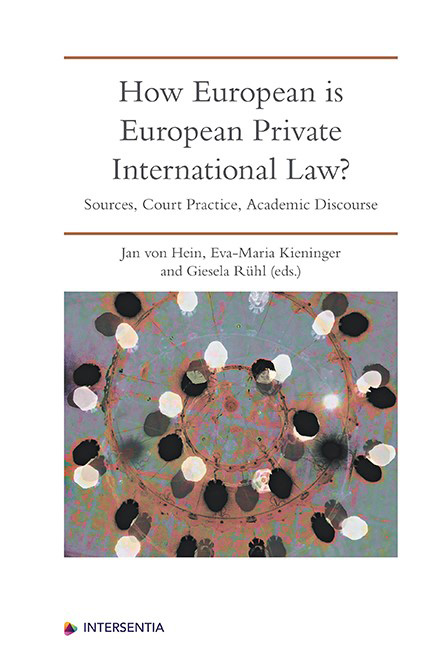National Court Systems and Uniform Application of European Private International Law
Published online by Cambridge University Press: 22 December 2020
Summary
STRUCTURE OF NATIONAL COURT SYSTEMS AND JUDICIAL COOPERATION IN CIVIL MATTERS
This chapter forms part of the broader discussion on the institutional framework and the judicial infrastructure for application of European Private International Law undertaken by this book. In particular, it looks at the possible role to be played by special courts or special chambers dealing with Private International Law matters in making actual court practice more European.
The development of judicial cooperation in civil matters having cross-border implications is one of the core elements of the establishment of an area of freedom, security and justice in the European Union. As laid down in Art. 67 TFEU, a basic feature of such area is that it is to be built with respect for the different legal systems and traditions of the Member States. Art. 67 is the provision opening Title V of Part Three of the TFEU on the area of freedom, security and justice. The measures adopted by the European Union concerning judicial cooperation in civil matters directly influence the activities of the courts of the Member States and the conduct of proceedings by them. Such measures may concern, in particular, the mutual recognition and enforcement of judgments; the cross-border service of documents; the rules on jurisdiction; cooperation in the taking of evidence; access to justice; the elimination of obstacles to the proper functioning of civil proceedings; the development of alternative methods of dispute settlement; and support for the training of the judiciary and judicial staff (Art. 81.2 TFEU).
Therefore, the adoption of measures regarding the judicial organisation or infrastructure of the national court systems is not, in principle, envisaged, although such measures may be relevant to achieve goals of judicial cooperation in civil matters, such as facilitating access to justice and promoting the proper administration of justice. The instruments adopted in the field of judicial cooperation in civil matters do not require the establishment of specific organisational structures within national court systems. This is in contrast with certain developments in other areas particularly related to public law, where EU law imposes a requirement for the creation of independent and regulatory agencies by Member States. Nevertheless, legal certainty and foreseeability play a prominent role in ensuring some basic goals underlying the Europeanisation of Private International Law, given its significance for the broader integration process.
- Type
- Chapter
- Information
- How European is European Private International LawSources, Court Practice, Academic Discourse, pp. 235 - 252Publisher: IntersentiaPrint publication year: 2019



